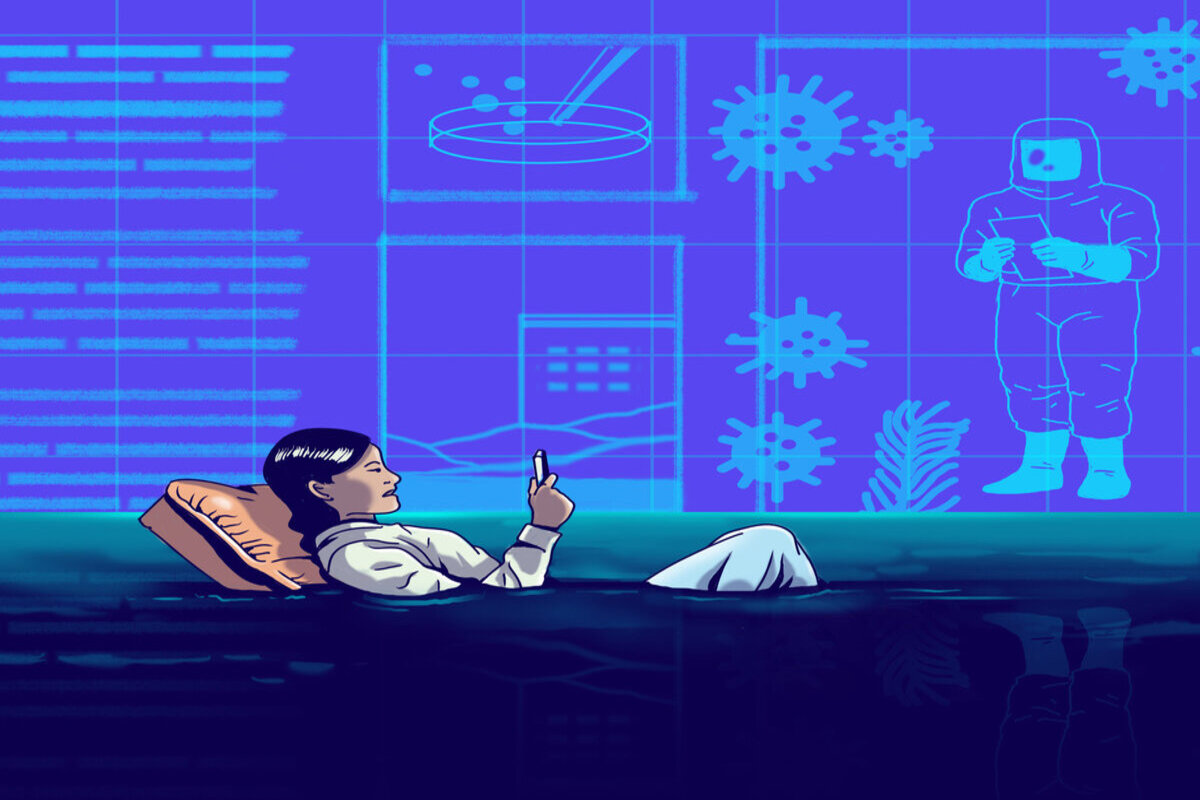It’s not just you and me, everyone is doomscrolling. Not convinced- Here’s all you need to know about doomscrolling and its cousin doomsurfing.
Since the COVID-19 pandemic has left many people locked down in their homes, it has become a ritual- each night ends the way the day began. Thumbs up, thumbs down, and endless scrolling through social media. This self-destructive behaviour has become so common that a new word for it has entered our lexicon: “Doomscrolling.”
This incessantly scrolling through bottomless doom-and-gloom news for hours as you sink into a pool of despair is called as doomscrolling. Doomscrolling and its cousin doomsurfing refers to excessively reading upsetting news on your phone or computer. The two words are used to describe the tendency to continue to scroll or surf through bad news, even when the news is saddening.
While the act of continuously scrolling through social media or surfing the web to constantly absorb bad news is not really new to the society, but it has gained attention during the pandemic and introduced everyone with the words: Doomscrolling and Doomsurfing.
Let’s get it straight, when we come across something bad on the internet, there are possibly two ways that we can opt for. Either we can avoid the news or obsessively read very little detail of it- and majority are doing the latter lately. With the stay-at-home orders, we have developed a tendency to binge on bad news.
But why do we doomscroll, and how bad it is?
Before coronavirus hit the world hard, doomscrolling existed in practice but not in name. This word got planted in our dictionary quite recently as this year people are obsessively reading bad news on social media and other platforms, without boundaries around when to stop. Without any distraction and thinking of our own comfort and entertainment, we are perpetually discussing negative news. It can be said that we have started feeding ourselves on it.
The word doom- is associated with destruction or ruin. Thus, this habit of doomscrolling is eroding our mental health. Continuously reading a dark or grim story will put a filter on how we see the world. These negative stories can harm us not only physically but mentally as well and can only make us feel miserable. A lot of it can come from anxiety about what is going to happen next, and therefore we keep on scrolling and scrolling.
Our mental health is connected to our physical health, it’s no surprise that negative habits such as doomscrolling negatively affect our body, from interfering with sleep to creating a craving for comfort food and overeating. Change in the lifestyle because of such traits often result in stress and depression.
How can we stop?
To stop, we need to be aware that we are doomscrolling. Firstly, it is an important step to be aware of our usage pattern of social media platforms and the internet. We should observe the pattern of our shifting habit, and avoid using mobile phones as soon as we are up. We should restrict our usage time for social media.
You should train yourself to see the positive in things. It’s not going to come about naturally; you have to work on it. Try to limit the amount of time you spend on your devices; set a timer. We should try to engage ourselves with positive behaviour on social media. This can be done by more engagement with friends and people we know, for exactly why social media was created.
The best way to stop doomscrolling is to be aware and conscious about the fact that why you are going into a particular article or news. Remind yourself why you’re there, what are you looking for, and what information are you trying to find. You can’t immediately cut out this vicious cycle of doomscrolling from your life, but can definitely keep a check on it, and shrink the usage of social media platforms.
You don’t need to break up with technology altogether to break free from the doomscrolling cycle; in fact, you can harness the positive powers of technology to combat it. The key is to take a more conscious, active role in your consumption.

